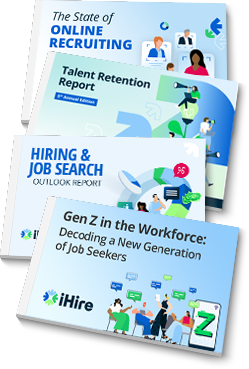- Employer Resources
- |
- Last Updated: September 10, 2025

The Soft Skills That Make Your Optometry Team Shine: What to Look for When Hiring
When you’re thinking about hiring an optometrist or optician, technical qualifications are probably the first things that come to mind. You need people who can perform eye exams accurately while working with complex equipment, understand the results, and know how to manage the prescribed treatments if necessary. But if you’re only looking at certifications and clinical experience, you could miss what actually makes someone thrive in your practice: their soft skills.
Soft skills for optometry are often what set great candidates apart. These are the personal attributes that shape how someone communicates and how well they work with others. And in a patient-focused field like optometry, these skills can impact everything from customer satisfaction to staff retention.
Why Soft Skills Matter in Optometry
Optometry is a high-touch field. Whether someone is at your front desk or examining a patient, they need to be a calm individual who can communicate clearly and with care. You might be hiring for a clinical role, but that person also needs to work well with others and know how to respond to difficult situations while helping patients feel comfortable.
Soft skills are often harder to teach than technical skills. That’s why it’s important to spot them early in the hiring process. If you bring in candidates who already have these strengths, they’re more likely to become long-term contributors to your team.
Top Soft Skills to Prioritize When Hiring
Here are the most important soft skills for optometry roles and how you can spot them during the hiring process.
1. Empathy
Empathy is the foundation of good patient care. Your team needs to be able to read a patient’s mood and respond with compassion while offering support. This is especially important when someone is anxious or unsure.
What to look for on a resume: Volunteer work, patient advocacy, or experience with vulnerable populations.
In interviews: Ask optometry interview questions like, “Tell me about a time you helped a patient who was upset or nervous. What did you do?”
2. Communication
Clear communication is essential. Whether someone is explaining a procedure or passing on a patient’s file, they need to get the message across without confusion.
What to look for on a resume: Team collaboration, report writing, or giving presentations.
In interviews: Pay attention to how candidates respond to your questions. Are they thoughtful and concise? Do they adjust how they speak depending on the topic?
3. Attention to Detail
A small mistake with a prescription or a missed note in a file can lead to big problems. You need people who are naturally careful and thorough.
What to look for on a resume: Roles that required precision, such as managing inventory or working with compliance standards.
In interviews: Use scenario-based optometry interview questions. For example: “What would you do if you noticed a discrepancy in a patient’s file?”
4. Adaptability
Your practice changes all the time. When new technology and evolving protocols or changes in patient flow consistently happen, your staff should be able to handle those shifts without becoming overwhelmed.
What to look for on a resume: Experience across different settings or a variety of job duties.
In interviews: Try: “Describe a time you had to learn a new system or process quickly. How did you handle it?”

5. Teamwork and Collaboration
Everyone in your practice needs to rely on one another. That’s especially true when things get busy or someone needs support with a difficult case.
What to look for on a resume: Projects that involved working with others or being part of a team.
In interviews: Ask how they approach working with coworkers who have different styles or experience levels.
6. Customer Service Mindset
Even when things are hectic, patients expect to be treated with kindness and professionalism. A strong customer service mindset helps keep appointments running smoothly and patients coming back.
What to look for on a resume: Experience in retail, hospitality, and front-desk roles. Any customer-facing experience helps here.
In interviews: Ask how they would respond to a patient who shows up late or is unhappy with their visit.
7. Conflict Resolution
It’s not uncommon to face tension in a clinical setting. Whether it’s a miscommunication between team members or a frustrated patient, the ability to de-escalate and find solutions is crucial.
What to look for on a resume: Leadership roles, committee work, or peer mentorship.
In interviews: Ask: “Tell me about a time when you disagreed with a coworker. What was the outcome?”
Reach Qualified Optometry Talent Today
Create Your Account to Get Started

We Value Your Privacy
How to Evaluate Soft Skills During the Hiring Process
Soft skills don’t always show up in a list of bullet points. You need to look a little deeper.
Start with the optometry resume. Look for words that show initiative and collaboration. Pay attention to how candidates describe their past roles. Then, move on to behavioral interviews. This is where you can really dig into how they’ve acted in previous situations. You might also consider role-playing scenarios or asking problem-solving questions to see how they think on their feet.
Need help knowing what to ask? Our list of optometry interview questions is a good place to start. It covers both clinical and interpersonal areas to help you get a complete picture of your candidate.
It also helps to be aware of red flags. Our guide on common hiring red flags can help you avoid costly missteps in the process.
Build a Stronger Team With iHireOptometry
Hiring the right person means more than checking for certifications. It means finding someone who brings value to your team and connects with patients on their level. This can help strengthen your practice culture. Whether you’re figuring out how to hire an optician or want to know how to hire an optometrist who can hit the ground running, focusing on soft skills will help you make better decisions.
At iHireOptometry, we help you find candidates who offer more than qualifications – people who bring empathy and communication that help your clinic thrive. Post your job today and connect with professionals ready to make a difference.
RELATED RESOURCES
Hiring? You're in the Right Place.
- Reach unique talent: 51% of our candidates aren't using other job boards
- Connect your ATS and get 6x more applications with iHire's apply process
- Get matching candidate resumes sent straight to your inbox
We Value Your Privacy




